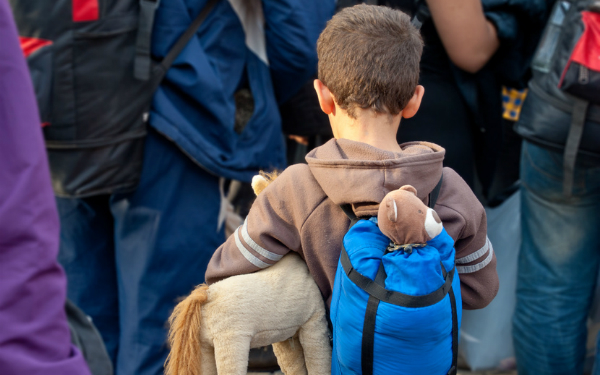
Social workers are expected to have a “broad understanding” of the immigration system to help support unaccompanied asylum-seeking children (UASC) and child refugees, new statutory guidance has said.
The guidance, published this week, also sets out the social work role in assessments, family reunification, accessing specialist asylum or immigration legal advice, and what parts of the asylum process social workers need to understand.
This includes the Welfare Interview, Statement of Evidence Form, the purpose of the asylum case review, the importance of the substantive asylum interview, the different possible outcomes of a child’s asylum claim, and how that impacts pathway planning.
It also states that age assessments “should not be a routine part of a local authority’s assessment of unaccompanied or trafficked children”, and should only be carried
out “where there is reason to doubt that the individual is the age they claim”.
“Where an age assessment is required, local authorities must adhere to
standards established within case law,” it adds, pointing to the procedures outlined in the 2003 Merton judgment.
The guidance states: “Social workers should also have a broad understanding of the immigration system – for example, the immigration application process, different types of leave, making further leave to remain applications and the appeals process. Social workers should also have an understanding of the trafficking referral process.”
How agencies support child victims of modern slavery is also included in the new guidance.
Vital
It comes as the government published a new policy paper on supporting UASC and refugees, which includes investment in specialist training for foster carers and downloadable training resources for social workers, as well as work to disseminate good practice in the area to help social workers understand their role.
UASC accounted for 6% of the total number of children in care at 31 March 2017, double the proportion recorded four years previously.
In total, £260,000 will be invested to train 1,000 foster carers, support workers and provide the new resources for social workers. The training for foster carers will be allocated to each local authority area based on the number of unaccompanied children and refugees they are supporting under the national transfer scheme.
Children’s minister Robert Goodwill said supporting child refugees was vital.
“Foster carers do an incredible job, but they must have tailored support to help them deal with the complex needs of these children. That’s why we are funding this specialist training, to help them give the best possible support to the children in their care,” Goodwiill said.
Specific needs
As part of their role, social workers should be aware of the child protection system around victims of modern slavery, including how and when to refer a child to the National Referral Mechanism, the guidance said.
Judith Dennis, policy manager at the Refugee Council, welcomed the guidance: “We are particularly pleased to see commitments to ensure foster carers and social workers understand the asylum process and are better able to meet the specific needs of children alone in the asylum system. We look forward to the actions promised in this strategy becoming a reality.”


 Bournemouth, Christchurch and Poole
Bournemouth, Christchurch and Poole  Hampshire County Council
Hampshire County Council  Lincolnshire County Council
Lincolnshire County Council  Norfolk County Council
Norfolk County Council  Northamptonshire Children’s Trust
Northamptonshire Children’s Trust  South Gloucestershire Council
South Gloucestershire Council  Wiltshire Council
Wiltshire Council  Wokingham Borough Council
Wokingham Borough Council  Children and young people with SEND are ‘valued and prioritised’ in Wiltshire, find inspectors
Children and young people with SEND are ‘valued and prioritised’ in Wiltshire, find inspectors  How specialist refugee teams benefit young people and social workers
How specialist refugee teams benefit young people and social workers  Podcast: returning to social work after becoming a first-time parent
Podcast: returning to social work after becoming a first-time parent  Podcast: would you work for an inadequate-rated service?
Podcast: would you work for an inadequate-rated service?  Family help: one local authority’s experience of the model
Family help: one local authority’s experience of the model  Workforce Insights – showcasing a selection of the sector’s top recruiters
Workforce Insights – showcasing a selection of the sector’s top recruiters 

 Facebook
Facebook X
X LinkedIn
LinkedIn Instagram
Instagram
This article uses the term asylum seeking child and child refugee interchangeably. It’s important to distinguish the two.